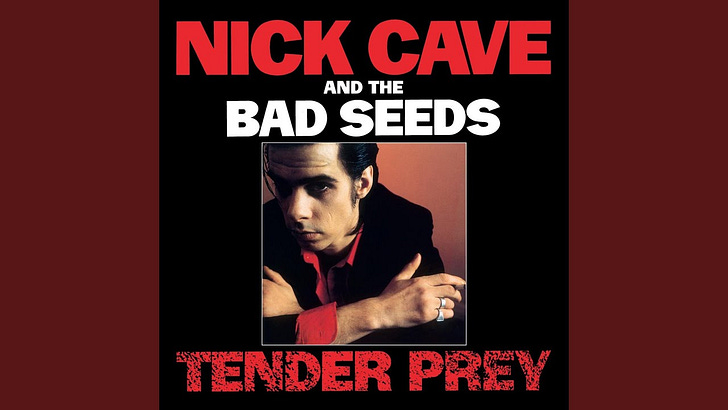The Mercy Seat: Nick Cave's Theological Masterpiece
Nick Cave “The Mercy Seat” 1988, Tender Prey
At a time when the popular radio airwaves were saturated by the likes of Warrant, Poison and Motley Crue, certain underground rebels crafted actual songs. One such musician, of course, was the great Nick Cave. Few knew in 1988 that Nick Cave would be held in such high esteem decades later. He just seemed like another bad-ass alternative Goth musician in the mold of Leonard Cohen (if Leonard Cohen had a modern backing band and an affinity for Edgar Allen Poe).
Nick Cave’s songs are a delight to listen to and analyze–influenced as much by literature and poetry as by song. Yet the music itself is so utterly authentic and his own that the modifier Caveesque is not a stretch. “The Mercy Seat” is an easy pick for the obvious reason that it is one of Nick Cave’s very best and most highly-textured songs with much to ponder for every listener. Myself, I love the creepy organ bee buzz sound underneath. Even more, I love the way the song snowballs, slowly building to ecstatic, almost heavy-metal heights. I wouldn’t discover Nick Cave until 1990 when a friend included one of his songs on a mixtape.
And yet here is a song essentially consisting of a dramatic monologue by, perhaps, a committed murderer on death row. Throughout the song the “mercy seat” operates both literally and metaphorically–Nick Cave, as usual, is prone to Biblical allusions. The seat is the electric chair, but also Jesus’ throne in heaven–which he knows he will see soon enough. Initially the speaker claims he is nearly wholly innocent but by the song's end he admits it is an utter lie. “Anyway I told the truth/But I’m afraid I told a lie.” Perhaps the [prisoner’s acceptance of his forthcoming capital punishment is a result of being guilty all along, though the song is filled with plenty of bluster (half-denials?) that offers other conclusions.
One pressing question: does this prisoner lose his mind? Early in the song there are odd visions of a hooked bone rising from his food and Jesus’s face in his soup, not to mention the constant evil squealing of the trolley system in the cafeteria. To some extent one could argue this is a song against capital punishment, especially in the line “to be done with all this measuring of proof” (“The Mercy Seat” humanizes the speaker–he is a butterfly pinned to a board, still alive and squirming, though not for long).
What is clear is that “The Mercy Seat” is a theological reflection, perhaps similar in spirit to the Misfit’s in Flannery O’Connor’s “A Good Man is Hard to Find.” The prisoner feels close to God–perhaps because he will meet his maker soon, but he also reflects on the irony of Jesus being a carpenter (and then being crucified on a wood cross). The injustice. Yet in heaven his throne is made of gold, he imagines. There may be a payoff–a happy consequence of his suffering.
“Mercy Seat” gathers such a hurricane force of thudding repetition; it builds and builds to the point where it seems as if the song might explode through the speakers. And yet it ends on a mystifying note–back to the prisoner’s admission about telling a lie. What is this lie? It could be about his innocence. But it could also be about his acceptance of death itself–perhaps this is all a cover, something to convince himself, to lesson the shock. Perhaps he has been lying to us, the listener, all along?
Heaven has the gold throne but “down here it is all wood and wire.” A poet, a philosopher–more potent lines have never been written by T.S. Eliot, Emily Dickinson or W.H. Auden. The world is fading, ephemeral and about to disappear for this individual. He begins to chill to objects in their fields–throwing Dostoevsky into the mix. “Mercy Seat” is masterful and even still it feels as though it will never end; it seems bent on churning on forever—with its eye for an eye and a tooth for a tooth. And, if you listen closely, you will wish it never would end. It is tragic and cathartic–and all the while we never know if the prisoner is innocent or guilty. Does it even matter?


